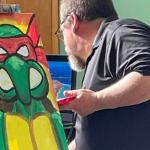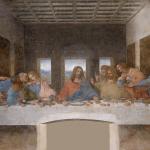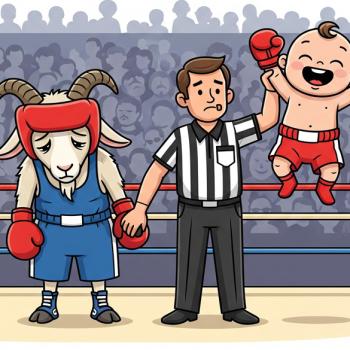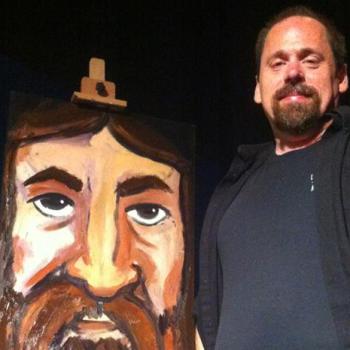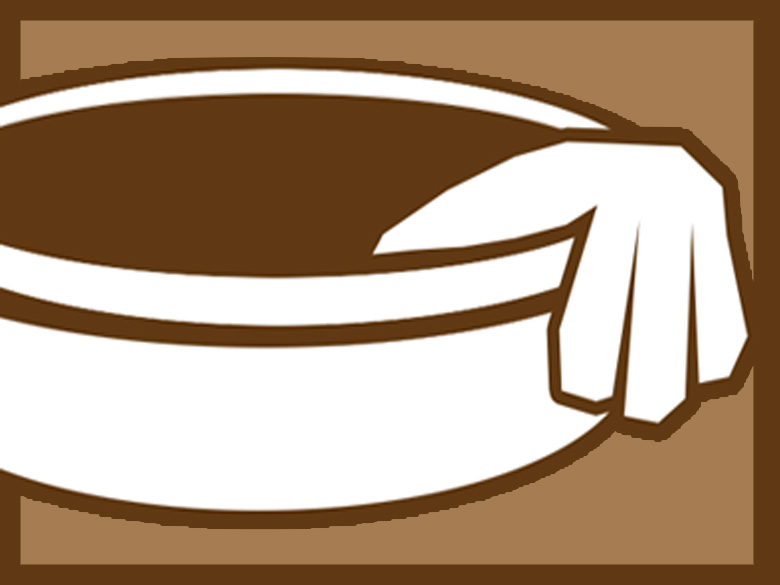
In this season leading up to Easter, we often speak of Palm Sunday, Good Friday and of course Easter Sunday, but what about Maundy Thursday? That Thursday was absolutely crucial in the ministry of Jesus, and it was on that day that Jesus gave us not one but two amazing illustrations—illustrations as clear and vibrant as any work of art. Let’s start with the basics…
What is Maundy Thursday?
First and most obviously, it was the last full day of Jesus’ earthly life. It’s evening has been immortalized in DaVinci’s famous painting, The Last Supper. To say a lot happened on that evening would be an extreme understatement. So we can say it’s important, but what’s with the name? Why is it called Maundy Thursday? According to an article in the Economic Times, “The word “Maundy” is originated from the Latin word called “mandatum,” which means “commandment.” This day is named after Jesus’ commandment to his disciples to love one another.” We’ll see this more on that commandment in the next article.
The Last Supper
On that Thursday, Jesus’ disciples were sent into town to secure a place where they would eat their Passover Feast. Jesus told them the signs that would point to the place He selected, and everything happened just as Jesus said. They secured the upper room and made preparations. This would be Jesus’ last earthly meal, His last supper. It was Passover, and that is significant, because on that night, Christian’s believe Passover met it’s fulfillment.
Passover
Passover traces it’s roots to the day Israel was freed after 400 years of oppression in Egypt. God had sent ten plagues against the hard-hearted Pharaoh and his people. These ten plagues got progressively worse, and each plague showed God’s power over one of the false gods of the Egyptians. The final plague was the death of the firstborn, in which every first born human being and every first born animal of the Egyptians would die. The Israelites were instructed to select a lamb for each family, and at sundown, they were supposed kill the lamb and take some of his blood and put it on the doorframes of the houses and eat a meal together, dressed and ready to go. At midnight, the angel of death came through the nation, and passed over any home that was under the blood of the lamb. Hence the name Passover.
The Passover Lamb
Do you remember how John the Baptist introduced Jesus to the people? He called Him the Lamb of God who takes away the Sin of the World. Jesus came to lay down His life and shed His blood, so that whoever would come to Him, “under His blood,” by faith would be saved. This is the fulfillment of the Passover. Even as the disciples gathered to eat the Passover with Jesus, they were a part of that fulfillment. When they prepared the room for the meal it was as if they were preparing the way for Jesus’ greatest act of love, but one preparation was omitted.
The Full Extent of His Love
John 13:1 says, “Now before the Feast of the Passover, when Jesus knew that his hour had come to depart out of this world to the Father, having loved his own who were in the world, he loved them to the end.” While I love this passage, I prefer how the 1984 version of the NIV said it. It said, “Having loved His own who were in the world, He showed them the full extent of His love.” Think about this, If Jesus is God, and God is love, then Jesus is the personification of love. How would the personification of love show the full extent of His love? Would He do some amazing miracle? Well He demonstrated over and over again that He was more than capable of such things, but no, that’s not it. Instead He did something much simpler. He washed feet.
Foot Washing
Foot washing was a vital part of their lives. It was a matter of cleanliness, hygiene and safety. After all, they walked dry dusty streets in sandals all day long—streets they shared with animals, beasts of burden and perhaps, at times, even raw sewage. By the end of the day, their feet would become filthy. Not only would this create a mess, the dirt on their feet could present a major health hazard. Foot washing was crucial. In their preparation for the Passover, it seems no one remembered their feet needed to be washed. Now as you can imagine foot washing was a dirty job. If a household has servants, the job of washing feet would fall to the servant of lowest rank. It was a job many people would have seen as beneath them.
The First Illustration
John 13:3-5 tells us what happened next. “Jesus, knowing that the Father had given all things into his hands, and that he had come from God and was going back to God, rose from supper. He laid aside his outer garments, and taking a towel, tied it around his waist. Then he poured water into a basin and began to wash the disciples’ feet and to wipe them with the towel that was wrapped around him.” All of the sudden the King of kings and Lord of lords was doing the work of the lowest of servants. That act turned their world upside down. It could be argued that perhaps the disciples were waiting for someone else to step up to do the dirty job. Perhaps they thought this was beneath them, but now Jesus was doing the job they neglected. And the Bible makes it clear, Jesus washed them all, even His betrayer.
Peter Resists
John 13:6-7 shows the scene: “He came to Simon Peter, who said to him, “Lord, do you wash my feet?” To be clear, this is not really a question. Peter sees the situation and knows it’s not right. He realizes, He should be washing Jesus, and not the other way around. By the way Peter would be right in his assumption, except for one thing, which we see in verse 7, “Jesus answered him, “What I am doing you do not understand now, but afterward you will understand.” Aha! This is about more than just clean feet. On this last night of His earthly life, Jesus was teaching His disciples some of His final and perhaps most important lessons. This lesson is huge. Keep in mind who these people are. They will be the leaders of this new thing that is coming called the church.
A Better Example
If it’s true that the disciples neglected washing feet because they felt it beneath them, they weren’t following the model of servant leadership Jesus had been demonstrating to them for the last three years. No, they were acting more like the other religious leaders they had seen in their lives—the very ones who were at this very moment in another place plotting against Jesus. Jesus didn’t want His followers to be high and mighty and prideful. Those were attitudes He was about to die to save us from. No, Jesus wanted His church to be led by faithful servants who would love well and serve humbly, and He still does.
Jesus Breaks the Resistance
Jesus broke down Peter’s resistance, with a simple phrase. John 13:8-9 Peter said to him, “You shall never wash my feet.”Jesus answered him, “If I do not wash you, you have no share with me.” Simon Peter said to him, “Lord, not my feet only but also my hands and my head!” Peter’s first instinct was to go overboard. It was as if he was thinking, “If washing my feet would get him more of Jesus, then wash my head and hands too, because I want all the Jesus I can get.” John 13:10 Jesus said to him, “The one who has bathed does not need to wash, except for his feet, but is completely clean.” The lesson was humble service. No need to go overboard.
Jesus Explains His Illustration
To make sure no one else was missing the point, Jesus started off by putting on the outer robe, probably His rabbinic garment. It seems this was to show He was switching roles back to their teacher and Lord. Next He asked a simple question, “Do you understand what I have done to you?” Answering that question right was crucial for them and it is for us. This is a point every Christian needs to get. Jesus gave the answer in John 13:13-17 Basically He is telling them and us, “Don’t let leadership go to your heads. Here I am your teacher and master, King of kings and Lord of lords, doing the work of the work of the lowest servant in the house. If I am willing to serve in this way, so should you be!”
How Is Your Attitude?
This should be the attitude of every Christian and especially every Christian leader. We need to show the full extent of our love by serving humbly and faithfully and if we determine serve in that way, here’s what Jesus has to say to us…
John 13:17 If you know these things, blessed are you if you do them.
In the next article, we will look at more of what happened on this Maundy Thursday and another amazing illustration from Jesus. For more on foot washing, check out this article.



